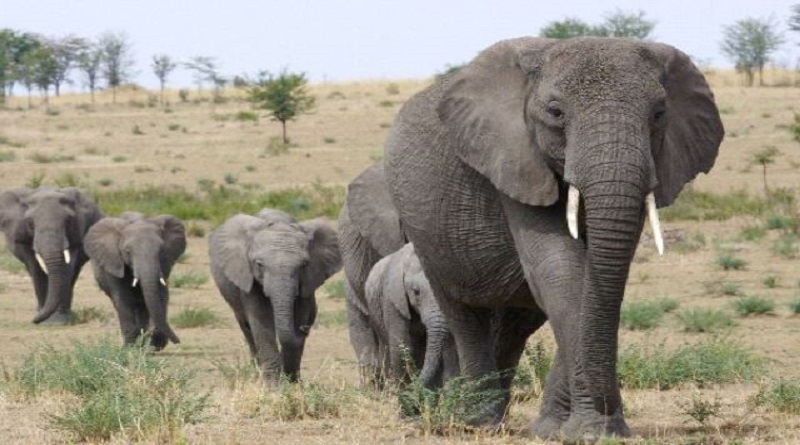African Range States agree on key priorities for sustainable management of species
African Range States of the African Lion (Panthera leo), Cheetah (Acinonyx jubatus), Leopard (Panthera pardus) and African Wild Dog (Lycaon pictus) met from 1 – 4 May in Uganda and agreed on a set of key priorities for the urgent conservation and sustainable management of these four carnivore species.
The meeting was convened jointly by the Secretariats of the Convention on International Trade in Endangered Species of Wild Fauna and Flora (CITES) and the Convention on the Conservation of Migratory Species of Wild Animals (CMS) under the African Carnivores Initiative (ACI).
Data from the IUCN Red List of Threatened Species confirms decreasing population trends for all four species. Populations of the four carnivore species are increasingly threatened by habitat degradation and fragmentation, land use conversion, illegal trade and illegal or incidental killing.
In their second meeting to date, ACI Range States of one or more of the four species agreed on conservation priorities that included:
Strengthening policies and actions to enhance human-carnivore co-existence
Promoting partnerships between the ACI Range States and within the global conservation community
Improving information and tools available to Range States (by enhancing data management processes associated with the African Lion Database; developing Lion, Leopard and African Wild Dog resource kits based on the Cheetah Trade Resource Kit, and providing advice to Range States on the development of infectious disease management plans for ACI species populations)
Securing funding for the implementation of the ACI Programme of Work
Species-specific priorities: Lion – updating The Guidelines for the Conservation of Lions in Africa in consultation and collaboration with Range State representatives, and the Secretariats of CITES and CMS; developing a Spatially Explicit Strategic Action Plan for the Recovery of the Northern Lion in Africa 2023–2027; and drafting guidance for non-detriment findings (NDFs) for lions under CITES
Leopard – updating and finalizing The Roadmap for the Conservation of the Leopard; and developing regional conservation strategies that address, among others, human-wildlife conflict and habitat fragmentation
Cheetah – expanding sustainable conservation financing and improving information exchange about the northeast African cheetah
The ACI Programme of Work fosters synergies of conservation and management activities of the species and is aligned with Resolutions and Decisions of the Conferences of Parties (COP) of both CITES and CMS.
In a joint mandate to conserve ACI-covered species, the two global multilateral environmental agreements (MEAs) address wildlife conservation challenges collaboratively through unique and complementary approaches. CMS focuses on conserving migratory animals and preserving and restoring areas that they use during their life cycles, while CITES regulates their international trade to ensure the sustainability, legality and traceability of such trade.
In her opening remarks at the meeting, CMS Executive Secretary Amy Fraenkel said: “The Joint CITES-CMS African Carnivores Initiative is an excellent example of how the only two global species-based conventions can work together to complement each other and add value to the work of each Convention.”
CITES Secretary-General Ivonne Higuero said: “It is encouraging to see collective action, collaboration and commitment by Range States, other Parties and partners. Collaboration will be essential to achieving not only the objectives of the ACI, but also the targets in the Kunming-Montreal Global Biodiversity Framework, namely Targets 4, 5 and 9 which focus on effective human-wildlife coexistence, sustainable wildlife management and use, and ensuring social, economic and environmental benefits for people, especially those most vulnerable and most dependent on biodiversity. The means to implement the ACI priorities agreed upon at this meeting require the consideration of innovative sustainable financing and leveraging support from a variety of sources, including the private sector.”
Outcomes to address illegal trade in big cats from the CITES Big Cats Task Force meeting held in Entebbe 24 – 28 April 2023 will also contribute to ACI Objective 7 to minimize illegal trade and incidental or illegal killing of ACI-covered species.
The ACI is implemented by Range States with support provided by CITES and CMS in collaboration with experts from the Cat Specialist Group and the Canid Specialist Group of the International Union for Conservation of Nature (IUCN).
The Second Meeting of Range States of the Joint CITES – CMS African Carnivores Initiative (ACI) was hosted by the Republic of Uganda and convened by the Secretariats of CITES and the CMS. It was organized thanks to the generous support provided by the European Union, Switzerland, the Federal Government of Belgium and the Flemish Government.




